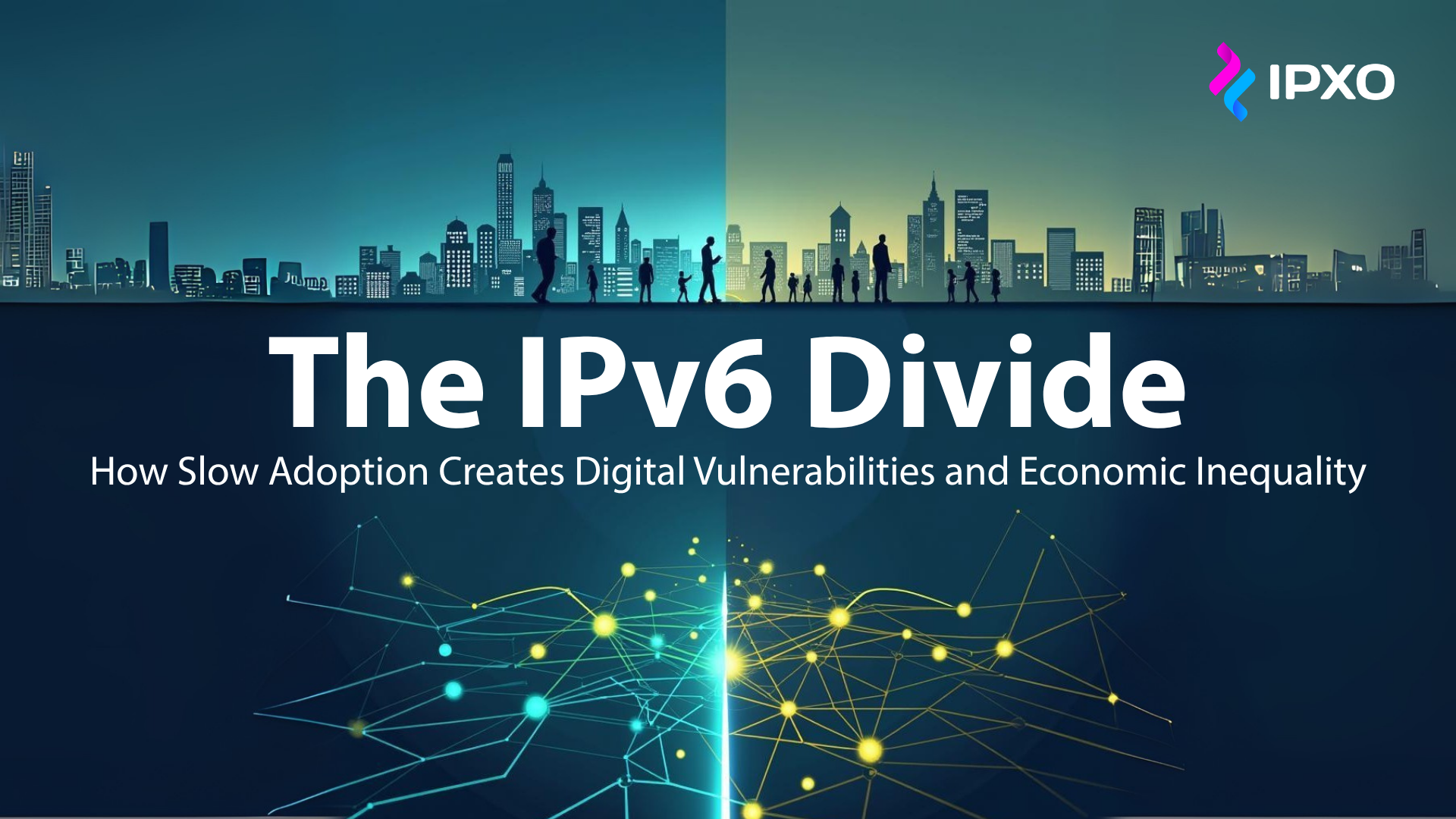
The IPv6 Divide: How Slow Adoption Creates Digital Vulnerabilities and Economic Inequality
The transition to IPv6 is becoming a strategic priority for digital resilience, as countries lagging in adoption face growing challenges in managing cyber threats and maintaining control over their digital infrastructure, largely due to the limited availability of IPv4. As IPv6-only environments become more common, continued reliance on IPv4 may lead to slower connectivity and could contribute to a widening digital divide, potentially limiting economic opportunity and digital inclusion. In this geopolitical landscape, moving to IPv6 serves as a critical step toward maintaining long-term digital independence.
As global tensions continue to rise, the vulnerability of digital infrastructure is drawing increased attention. For instance, a ship disrupted undersea Internet cables in the Baltic Sea last year — an event that highlights a broader trend, with cybersecurity professionals reporting a growing frequency of deliberate digital disruptions. Compounding this is an unprecedented surge in data breaches. Against this evolving backdrop, the move to IPv6 is no longer merely a technical progression — it’s becoming a strategic priority tied to cybersecurity and digital sovereignty.
The cyber threat environment in 2025 is defined by more advanced attack methods, the rise of AI-driven criminal activity, and persistent threats targeting digital systems. Security professionals around the world emphasize that even small inefficiencies can carry serious consequences. A prime example is the delay in adopting IPv6, which can leave countries vulnerable to strategic setbacks in connectivity and digital infrastructure, ranging from heightened cybersecurity threats to diminished control over their digital assets.
When countries don’t have enough IP address resources, they often end up depending on cloud and network services owned by foreign providers. That weakens their digital independence and puts up major roadblocks in digital trade, especially when it comes to fully joining IPv6-powered systems. Relying on IPv4 infrastructure may even increase the risk of facing sanctions or being disconnected from critical routing networks.
The Risk of Deepening the Digital Divide
A growing number of nations — among them the U.S., China, Germany, Brazil, and India — are pushing forward with IPv6 adoption as a way to strengthen and modernize their digital infrastructure. Both public institutions and private organizations are taking action, introducing policies, incentives, and support mechanisms designed to speed up the global move away from IPv4 and toward IPv6.
Take India, for instance: It completed the transition of all government departments to IPv6 by the end of 2022, setting a benchmark for national-level adoption. Meanwhile, China is aggressively pursuing its IPv6 goals, targeting at least 60 percent of Internet traffic to run on IPv6 by the close of 2025. Such plans are essential for both the development of digital infrastructure and for achieving security advantages.
IPv6 unlocks new possibilities for implementing advanced features, something increasingly vital in an era marked by constant cyber threats. More critically, the rise of IPv6-only networks may leave users who still rely on IPv4 facing reduced performance or limited access to parts of the Internet. This growing disconnect threatens to widen the digital divide, fueling economic disparities and obstructing participation in global digital trade. Government systems that continue to rely on outdated infrastructure may also find themselves more vulnerable to security breaches.
Delaying the shift to IPv6 can significantly hinder a nation’s progress in developing robust digital infrastructure. With every additional connected device, the demand for IP addresses grows, and the aging IPv4 framework is no longer equipped to handle it. This shortfall creates roadblocks to innovation. Moreover, as the global Internet ecosystem increasingly adopts IPv6, systems that rely solely on IPv4 face the danger of becoming outdated and potentially excluded from modern routing networks.
It’s important to recognize that IP address resources, and the protocols that manage them, serve as strategic assets. IPv6 represents more than just a technological improvement. It’s a fundamental tool for asserting digital sovereignty. During this phase of transition, IP leasing has become an essential strategy, offering organizations a practical way to navigate the shift from IPv4 to IPv6 and maintain operational continuity.
Requesting an IPv6 block from ARIN is a simple process, and ARIN’s Number Resource Policy Manual (NRPM) Section 4.10 provides for a dedicated block of IPv4 to facilitate IPv6 deployment.
If you’re ready to start your IPv6 journey or need support at any point along the way, you can take advantage of ARIN’s free online guide to IPv6. This resource presents practical insights, strategies, and instructions to help you understand, prepare for, request, and implement IPv6.
Any views, positions, statements, or opinions of a guest blog post are those of the author alone and do not represent those of ARIN. ARIN does not guarantee the accuracy, completeness, or validity of any claims or statements, nor shall ARIN be liable for any representations, omissions, or errors contained in a guest blog post.
Recent blogs categorized under: IPv6
GET THE LATEST!
Sign up to receive the latest news about ARIN and the most pressing issues facing the Internet community.
SIGN ME UP →Blog Categories
Guest Post • Public Policy • IPv6 • IPv4 • Updates • Fellowship Program • Security • Grant Program • Caribbean • Outreach • ARIN Bits • RPKI • Internet Governance • Tips • IRR • Elections • Training • Data Accuracy • Business Case for IPv6 • Customer Feedback



